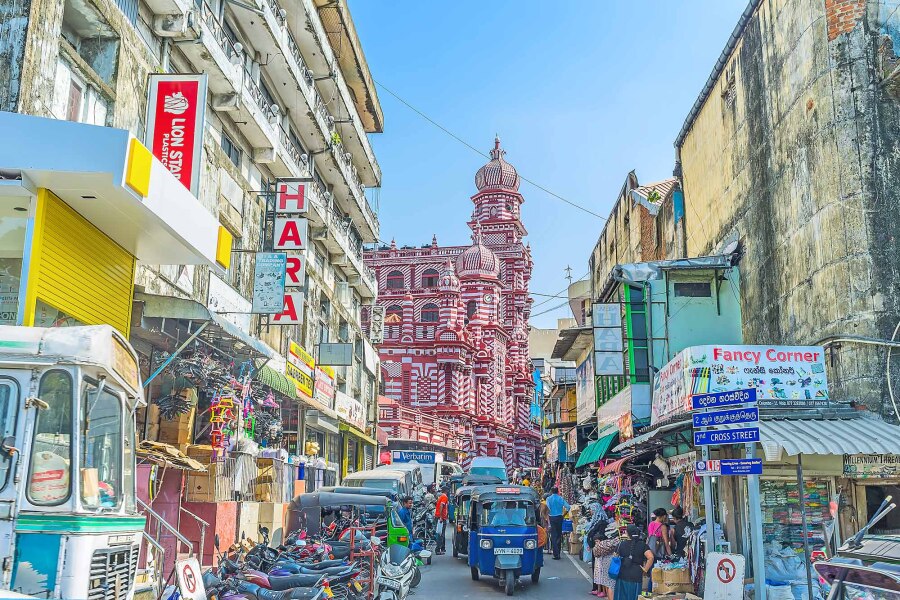On Sunday, April 21, bombs went off in three churches and four hotels in Sri Lanka, killing more than 300 local worshippers and international travelers and injuring some 500 more. Before the attacks, Sri Lanka was considered a rapidly emerging destination. With several luxury and boutique hotel openings and a place at the top of Lonely Planet’s Best in Travel 2019 list, the island nation off the southern tip of India was hitting its stride after a nearly three-decade civil war ended in 2009.
But will that change now? Here’s what the experts are saying about traveling to Sri Lanka after the terror attacks.
In response to the bombings that rocked the cities of Colombo, Negombo, and Batticaloa, the U.S. State Department increased the travel warning to Sri Lanka from a Level 1 (“Exercise normal precautions”) to a Level 2 (“Exercise increased caution in Sri Lanka due to terrorism”) on its four-level scale. For context, that’s the same warning level that Germany, France, and Italy also have right now.
While the U.S. government warns that terrorist groups could be plotting more attacks in Sri Lanka, it hasn’t raised the travel advisory to “reconsider travel” or “do not travel” yet. According to the Sri Lanka travel advisory, terrorists are likely to target “tourist locations, transportation hubs, markets/shopping malls, local government facilities, hotels, clubs, restaurants, places of worship, parks, major sporting and cultural events, educational institutions, airports, and other public areas.”
The British government issued a similar report, telling travelers currently in Sri Lanka to “remain vigilant, avoid crowded public areas and gatherings/demonstrations.”
G Adventures currently has eight groups with 116 travelers in Sri Lanka. While Kim McCabe, head of U.S. public relations and communications for G Adventures, confirmed that they are all safe and accounted for, each of the trips has been rerouted to avoid Colombo.
“G Adventures’ local team is monitoring this ongoing situation and will determine if further itinerary changes or cancelations are necessary,” according to an official statement from the tour operator. “At this time, all future trips to Sri Lanka are running as scheduled.”
Other major tour operators are monitoring foreign travel advisories and checking in with local authorities for updates on the ground as the situation develops. However, many of them pointed out, it’s ultimately up for travelers to decide what risks they are willing to take and where they feel safe traveling.
“As someone who manages people’s dreams on these trips, we also have to manage their fears,” said Kate Doty, managing director of Geographic Expeditions in San Francisco. “We want to be somebody who can inform and be a really good place of information. We can give our perspective, but we can’t guarantee someone’s safety. We don’t have a crystal ball. Nobody does.
“It’s just about trying to be as supportive as we can of Sri Lanka, but also respectful of our guests’ risk management bandwidth,” Doty said. “All that being said, when the bombing happened in Nairobi, we didn’t get a single call. Nice was the real game changer. People are just beginning to understand that there is no way to know where the next hit will be. You either choose to travel or you choose not to travel.”
After Sunday’s attacks, Catherine Heald, cofounder and CEO of Remote Lands, a luxury travel outfitter that designs trips to Asia, said some of her customers have asked to delay scheduled trips “until the dust settles.” But she doesn’t anticipate another attack any time soon. “Lightning rarely strikes twice at the same place.”
Jonny Bealby, founder and managing director of Wild Frontiers in London, points out that April marks the end of the traditional tourist season in Sri Lanka, so most tour operators and travelers will have the entire summer to assess the situation and plan accordingly for their upcoming fall and winter trips.
With that in mind, many companies said they are waiving penalties for guests who may be considering postponing or canceling their trips, in order to give them time to make an informed—not rushed—decision. If you have a trip booked, contact your tour operator directly to see if it has adjusted its policies.
>> Next: Finding Two Faces of Paradise in Post-War Sri Lanka








